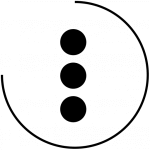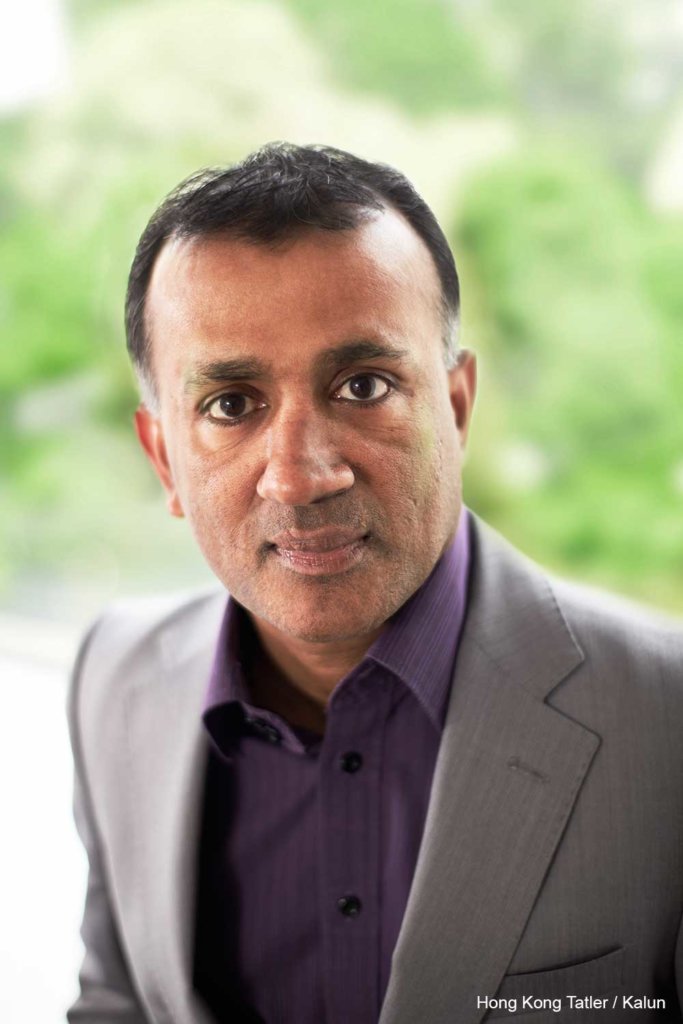Interview with Chandran Nair, Global Institute for Tomorrow
Picture: Chandran Nair, courtesy of the Tatler Hong Kong
The Global Institute for Tomorrow is an independent Asian think tank with the explicit purpose of understanding the shifts in political and economic influence from the West to Asia and how this reshapes the rules of global capitalism. With a background in engineering, a career in development in Southern Africa, and years of environmental consultancy in Hong Kong, founder and chairman, Chandran Nair, has seen enough of the business world to know what it needs. Dissatisfied with what corporate culture and mainstream education currently has to offer, Nair established GIFT, a think tank that stands for everything he believes in. In an interview with Tharawat, the provocative entrepreneur passionately discussed and defended his alternative and progressive worldviews.
How did the Global Institute for Tomorrow (GIFT) begin?
The day I left my consulting job, I received numerous job offers that all required me to move to the West. I wanted to stay in Hong Kong and, because I was unwilling to compromise on many matters in general, I began my own organisation.
I wanted to take a risk when I started GIFT. I wanted to challenge hubris. It stemmed from a sort of obsession with pursuing intellectual integrity and honesty of choice. I wanted to address an issue that had been on my mind: Asia is too subservient to the West, a “normal” post-colonial phenomenon. But it is necessary that we develop our own thinking, which is why I decided to establish GIFT, an independent Asian think tank.
My view is that special interest lobby groups back most think tanks. You can’t think freely if you are subsidised by a lobby. The only way to create an independent think tank is to accept no funding. We did not want to be encumbered by backer agendas and needed an alternative revenue model. There is appetite for novelty, a need for more voices and more new ideas. A lot of people understand that there needs to be a much more honest dialogue about the world, that many more different perspectives should be considered. We wanted to see if we could create a revenue stream from this thirst, to monetise it. The best way for us to introduce new ideas to corporations was to create executive training programs that would challenge the knowledge of leading universities and business schools.
The first few years were difficult because we had to build our reputation. We are now known for our different take on Asia and the developing world. We have achieved what we wanted to achieve, and are invited around the world to do what we do best.
Do you tire of continuously challenging the mainstream?
Choices never seem difficult when they seem right. I think if you are secure in your abilities and in your limitations, then there is nothing to be afraid of. I am rather fortunate because I tend to know what my weaknesses are.
I came from a poor background. Growing up, I never imagined that I would travel on a plane, let alone be in business class. But, there are only so many five star meals you can eat in a week. If you have the luxury of not having to worry about the basics, then you have to go out and do something useful. Ninety-nine percent of the world population do not have that privilege. You must always remember that there are so many people that have it so much worse than you. You should exercise the freedom you have. Besides, freedom at work is most important. If you do not enjoy it, then don’t turn up. You should have three to four careers during your lifespan. You need to keep testing yourself.
[ms-protect-content id=”4069, 4129″]
Does adversity help one become a successful entrepreneur?
The drive comes from witnessing so much inequality, from being fed up with people of the developing world remaining quiet and seeking solutions from the West rather than coming up with their own. People need to challenge the misconceptions about our part of the world. We must contest the language we use. I think that people like myself need to speak up because we have diverse backgrounds and understand different cultures. Those of us who grew up like that know there’s no “one size fits all” approach that works for everyone. We need to take ownership of the dilemma. We need to take ownership of the challenge. We have to be more confident to come up with our own ideas and solutions.
What was the vision behind the publication, “The Other Hundred”?
“The Other Hundred” was my way of respectfully disagreeing with what we are taught to believe. People forget history, even recent events, and that orients their ideas in certain directions.
The initial basic idea behind “The Other Hundred” was to question why we always celebrate the richest people in the world. When I walk the streets where I live, I don’t see these people everyone keeps talking about. How come none of them look like anybody I’ve ever met? Is this an attempt to make us feel inferior? They all seem to come from Mars! Through the work of The Global Institute For Tomorrow we are able to ask the awkward question: Who are the others? If we can find the richest hundred people, why do we never get shown the others, those who are not materially rich but live rich lives?
We also tried our hand at two other editions. We wanted to publish a book of storytelling and photo-journalism. It was incredibly hard to get good submissions. Most photographs we received were such clichés. I refuse to show another African child with flies on his face looking up at the camera hungrily! That is not Africa! We had a panel of judges vote on the photographs to be included. We wanted to challenge what people thought of different cultures.
The second edition aimed to do the same for entrepreneurs. We wanted to contradict the media craze of just engaging one type of entrepreneur. Not everyone is creating a Silicon Valley start-up. Most entrepreneurs are solving immediate problem in their communities and will never care about VCs or debt to equity ratios. The majority of our world’s economy is determined by small to medium-sized enterprises, and it is time we understood who these companies are. There is a wide spectrum of entrepreneurs in the world. It’s okay to be different, to do things differently.
We want to continue publishing “The Other Hundred” series with a focus on different fields. Perhaps we will address educators and performers next.
What about your own books? Could you tell us about them?
In my first book, I wanted to point out that if Asia continues to follow the Western consumerist model, we will destroy the world. The book also tries to counter the idea that technology will somehow be our saviour. I wanted to challenge those who say that free markets, technology, democracy, and capitalism are the solution for everyone. In our societies, there needs to be an appreciation of collective welfare. We can’t become individualists. We have to define a very different future. The book resonates with many people, perhaps because it tackles topics that seem off limits.
I am currently working on a second book that calls out the myth that modernization is a synonym for westernisation. We need to get over that idea here in Asia because the way we currently define modernity is actually out-dated. We need a whole new identity for modernity. I hope the book, which mostly targets millennials, can help channel thinking in that direction.
Tharawat Magazine, Issue 27, 2015
[/ms-protect-content]

